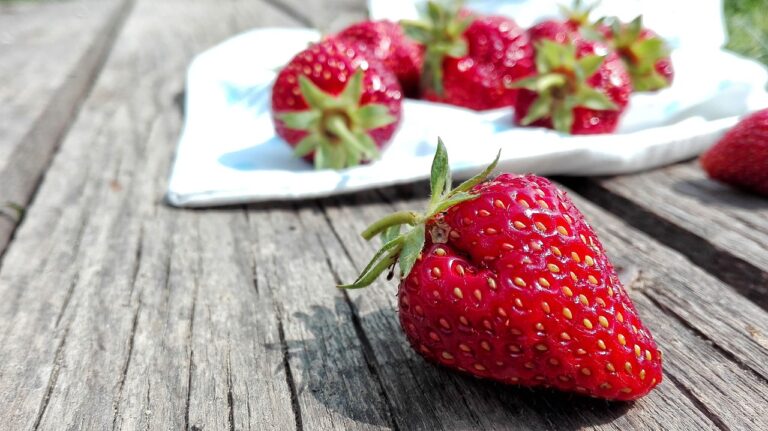Honey Production and Renewable Energy: 11xplay reddy login password, King 567, Skyinplay live login
11xplay reddy login password, king 567, skyinplay live login: Honey Production and Renewable Energy
As society continues to focus on sustainability and reducing our impact on the environment, the intersection of honey production and renewable energy has become a topic of interest. Honey production is an essential industry that provides us with a delicious and versatile product, while renewable energy sources offer a cleaner alternative to traditional fossil fuels. In this blog post, we’ll explore how these two sectors can work together to create a more sustainable future.
The Role of Bees in Honey Production
Before delving into the relationship between honey production and renewable energy, it’s essential to understand the critical role that bees play in this industry. Bees are the primary pollinators of many flowering plants, including those that produce the nectar used to make honey. Without bees, the process of pollination would be significantly hampered, leading to a decrease in crop yields and biodiversity.
Honey bees are incredibly efficient pollinators, making them vital to the agricultural industry. In addition to honey production, bees play a crucial role in pollinating fruits, vegetables, and other crops that humans rely on for food. As such, supporting bee populations is essential for maintaining a healthy ecosystem and ensuring food security for future generations.
Renewable Energy and its Benefits
Renewable energy sources, such as solar, wind, and hydroelectric power, offer a sustainable alternative to fossil fuels. Unlike coal, oil, and natural gas, renewable energy sources are replenishable and produce minimal greenhouse gas emissions. By investing in renewable energy, we can reduce our reliance on fossil fuels and mitigate the impacts of climate change.
Solar power, in particular, has gained popularity in recent years due to its affordability and accessibility. Solar panels can be installed on rooftops, open fields, or even floating on water bodies to harness the sun’s energy and convert it into electricity. Wind turbines, on the other hand, use the power of the wind to generate electricity, while hydroelectric power plants utilize the force of flowing water to produce energy.
The Role of Renewable Energy in Honey Production
So how does renewable energy tie into honey production? By incorporating renewable energy sources into honey production facilities, beekeepers can reduce their environmental footprint and lower their operating costs. For example, installing solar panels on the roofs of beehives can provide a sustainable source of energy to power equipment and heating systems.
Additionally, renewable energy can be used to power honey extraction and processing equipment, reducing the reliance on traditional energy sources. By using clean energy to run their operations, beekeepers can demonstrate their commitment to sustainability and environmental stewardship.
Furthermore, beekeepers can utilize renewable energy to power remote apiaries located in areas without access to the electrical grid. Solar panels or small wind turbines can provide a reliable source of power to these off-grid locations, ensuring that bees have the necessary resources to thrive.
The Benefits of Combining Honey Production and Renewable Energy
The combination of honey production and renewable energy offers several benefits to both industries. By embracing sustainable practices, beekeepers can reduce their environmental impact and contribute to the fight against climate change. Renewable energy sources also offer a cost-effective alternative to traditional energy sources, helping beekeepers save money on electricity bills.
Moreover, integrating renewable energy into honey production can help beekeepers build resilience against supply chain disruptions. As climate change continues to impact weather patterns and natural resources, having access to a reliable source of energy can ensure that beekeepers can continue their operations regardless of external factors.
In addition to the environmental and financial benefits, the combination of honey production and renewable energy can also enhance the marketing appeal of honey products. Consumers are becoming increasingly conscious of the environmental impact of the products they purchase, and honey produced using renewable energy may appeal to eco-conscious customers.
The Future of Honey Production and Renewable Energy
As the world continues to grapple with the challenges of climate change and resource depletion, the integration of honey production and renewable energy offers a promising solution. By leveraging clean energy sources to power honey production operations, beekeepers can reduce their environmental footprint and contribute to a more sustainable future.
Moving forward, it is essential for beekeepers, policymakers, and consumers to support the adoption of renewable energy in honey production. By investing in solar panels, wind turbines, and other clean energy technologies, beekeepers can demonstrate their commitment to sustainability and inspire others to follow suit.
FAQs
Q: How can beekeepers finance the transition to renewable energy?
A: Beekeepers can explore various options to finance the transition to renewable energy, such as government incentives, grants, loans, and partnerships with renewable energy providers.
Q: Are there any challenges associated with integrating renewable energy into honey production?
A: Some challenges beekeepers may face include the initial investment cost of renewable energy technologies, regulatory hurdles, and technical limitations in remote locations.
Q: What are some examples of beekeepers successfully implementing renewable energy in honey production?
A: There are several inspiring examples of beekeepers around the world incorporating renewable energy into their operations, such as installing solar panels on beehive roofs or using wind turbines to power apiaries.
Q: How can consumers support honey producers using renewable energy?
A: Consumers can support honey producers using renewable energy by choosing to purchase honey products from sustainable sources, educating themselves on the benefits of renewable energy, and advocating for policies that promote clean energy adoption in the honey production sector.







